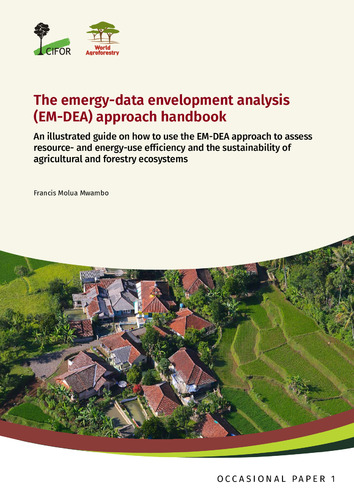The emergy-data envelopment analysis (EM-DEA) approach handbook
Abstract
Emergy-Data Envelopment Analysis (EM-DEA) is a methodological approach for achieving complete environmental-economic accounting of different production systems. In an age when resources are scarcer than ever before, and the environmental impact of humanly designed systems of production is a major concern when deciding which system could better contribute to human and economic development without compromising the future of the global environment, using a reliable method for the comparative assessment of the efficiency and sustainability of different production systems is critical when making smart decisions. This handbook provides a step-by-step instruction to help users apply the EM-DEA approach to simultaneously assess the resource and energy use efficiencies, and sustainability of agricultural and forestry ecosystems as a whole. This approach was developed to address the lack of a singular method to assess complete environmental accounting and compare the sustainability performance of agro-ecosystems. The EM-DEA approach does so by combining emergy analysis (EMA) and data envelopment analysis (DEA) methods. By offering flexibility to account for various natural, human and economic resources such as land or input contributions from farm animals, it provides a means to do a comprehensive environmental accounting throughout the lifetime of agricultural and forestry systems. This approach was empirically tested with a comparative analysis of five maize production systems in Ghana, Africa. The results demonstrated that the application of the EM-DEA approach leads to complete environmental-economic accounting. Thus, EM-DEA is an innovative approach that could be used to support decision making when comparing different production systems as a whole.

